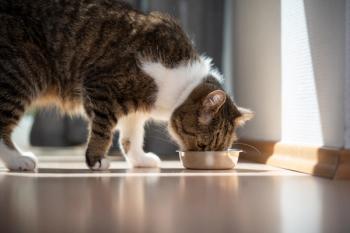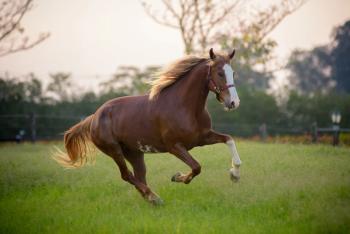
Mind Over Miller: An accurate and unfortunate prediction
Dr. Robert M. Miller remembers warning of antibiotic resistance in his early years of practice.
Research by the Translational Genomics Research Institute in Arizona recently found that 47% of beef, pork, and poultry meat samples harbored Staphylococcus aureus and that 52% of the staphylococci were antibiotic-resistant. The cause of this potentially disastrous problem is the indiscriminate feeding of antibiotics to healthy livestock, a custom since the mid-20th century.
Robert M. Miller, DVM
According to Shelley Hearne, the managing director of the Pew Health Group, this practice "compromises our ability to save human lives in the future."
Please allow me to take you back to 1958. I had recently established my practice in California, and one of my new clients was the Crummer Ranch near the town of Calabasas. It was a cow-calf outfit, and, of course, I got to treat their horses, dogs, and cats, as well as their cattle.
1958 was a wet year, and the grass that spring was tall and abundant. The Crummer Ranch foreman, Elbert Griffin, told me that they had so much feed that they had decided to keep 40 head of steers and fatten them for the market.
"Good idea," I agreed.
"Doc," the foreman said. "Everybody is feeding aureomycin and other antibiotics to feeder cattle, and the farm journals all recommend it. Plus, we get a lot of advertising. We've never done that because normally we sell our calves once they're weaned. Do you recommend we feed antibiotics?"
"Grif," I said. "Everybody's doing it, and I have no doubt that it is increasing profits. But it worries me. See, I have great respect for what I call the life force. If you understand how any species evolves, you'll know that the strongest individuals survive harsh environmental stresses. So an antibiotic kills off 99% of a given bacteria—or even 99.9%. The few that survive must be resistant to the antibiotic that is killing most of them. The few survivors then may be able to pass on their resistance to their offspring. If so, then we have created a new bacterial strain that is more dangerous than the original. I'm afraid that this use of antibiotics in healthy animals will someday cause us big trouble. It's just like the outbreaks we've seen here of anthrax and anaplasmosis. Some cattle die; the stronger ones live. Bacteria are living things, and the same concept applies."
"OK Doc," Grif said. "We won't feed any antibiotics."
"Well, I won't be upset if you do," I responded. "I understand that your goal is profit, so you do whatever you think is best for the ranch. But you asked me for my opinion. I think we'll pay dearly for using antibiotics indiscriminately someday."
"No, Doc. Whatever you say. We respect your opinion."
Long afterward, Grif called me and asked if I remembered our conversation.
"Sure I do," I said.
"Well," he responded. "We took your advice and did not feed any antibiotics, and guess what happened?"
"What happened?" I asked. (Now remember, this was 1958. But it was also southern California.)
The ranch foreman answered me: "Some health food outfit in Los Angeles couldn't find any meat produced without feeding antibiotics, except for us. We sold them our steers for a record price. Thank you, Dr. Miller!"
Antibiotics have been one of the greatest medical discoveries of all time, probably only second to vaccinations. To have overused them and misused them is an unforgivable mistake. We were forewarned in the 1940s when resistance occurred to the sulfa drugs. We should have assumed that, following the discovery of penicillin, inappropriate use of this "miracle drug" might eventually produce penicillin-resistant bacteria. It did!
Today, the Centers for Disease Control and Prevention reports that almost every kind of disease-causing bacteria has become more resistant and less responsive to treatment.
It is incumbent upon we who prescribe to do so judiciously.
Robert M. Miller, DVM, is an author and a cartoonist, speaker, and Veterinary Medicine Practitioner Advisory Board member from Thousand Oaks, Calif. His thoughts in "Mind Over Miller" are drawn from 32 years as a mixed-animal practitioner. Visit his website at
Newsletter
From exam room tips to practice management insights, get trusted veterinary news delivered straight to your inbox—subscribe to dvm360.






